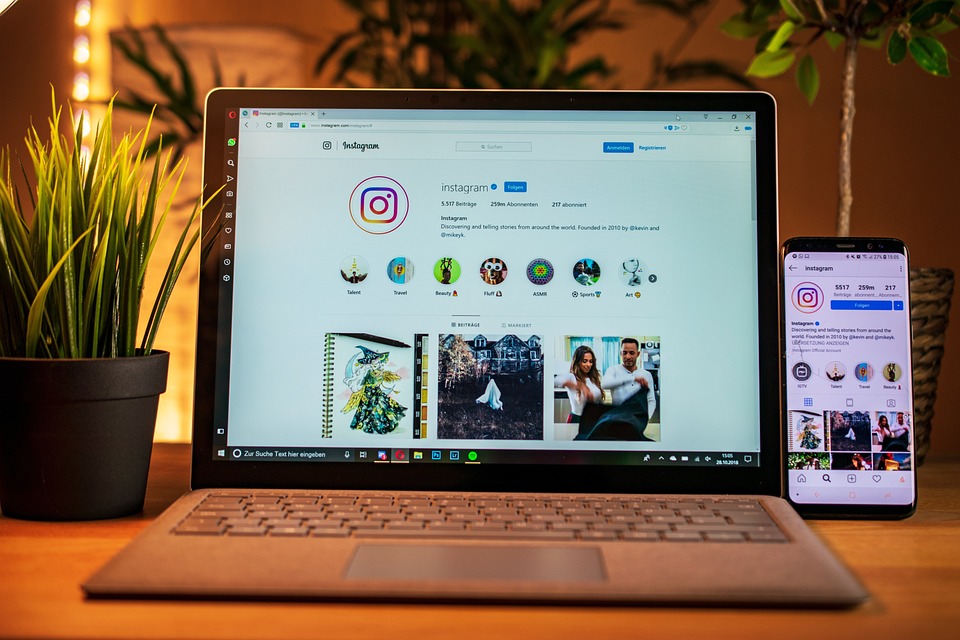The Power of Influencer Marketing on Social Media Platforms
Social media has revolutionized the way businesses promote their products and services, thanks to various marketing strategies, such as Influencer Marketing. With almost half of the world’s population on social media today, it’s no surprise that different brands have shifted their focus to Influencer Marketing. Let’s dive deeper into the power of Influencer Marketing on social media platforms.
What is Influencer Marketing?
Influencer Marketing refers to a type of marketing that uses influencers’ popularity to promote a particular product, service or brand to their followers. Influencers are individuals who have amassed a significant following and built a reputation in a particular niche or industry. They can be anybody, from celebrities and athletes to bloggers and social media influencers.
The idea behind Influencer Marketing is to leverage influencers’ credibility and influence on social media to create awareness and promote sales for a particular product, brand or service. Influencers can be used to create product reviews, endorse products or services, and offer exclusive promotions to their followers.
Why is Influencer Marketing so powerful?
Influencer Marketing is powerful because of the following reasons:
1. Massive Reach
Influencers have a large following that can help businesses reach a broader audience quickly. With a single post featuring a particular brand, product or service, an influencer can expose it to thousands, if not millions of people, instantly. This massive reach is crucial when it comes to creating brand awareness and driving sales.
2. High Engagement Rates
Influencer’s followers trust them and often engage with their content. This trust translates into high engagement rates for businesses working with influencers. When an influencer posts on social media promoting a particular product or service, their followers are more likely to engage with the content, leading to higher conversions.
3. Improved Credibility
Influencers have built a reputation and gained a following in a particular niche, and their followers often see them as experts in that particular niche. When an influencer promotes a product, their followers are more likely to trust their opinion, resulting in increased credibility for the product or brand they are promoting.
4. Highly Targeted
Influencer Marketing allows businesses to reach a highly-targeted audience. With the vast amount of data available today, businesses can easily find influencers whose audience aligns with their target market. This level of targeting helps businesses ensure that they are getting the most out of their marketing budget and resources.
How to create an effective Influencer Marketing strategy
Creating an effective Influencer Marketing strategy requires the following steps:
1. Identify Your Goals
Start by identifying what you want to achieve with Influencer Marketing. Is it to increase brand awareness, drive sales, or promote a new product? Identifying your goals will help you determine which influencers to work with and what type of content to create.
2. Find the Right Influencer
Finding the right influencer is crucial to the success of your Influencer Marketing strategy. Look for influencers whose audience aligns with your target market and whose niche is relevant to your industry. You can also use tools like BuzzSumo, HypeAuditor, and Upfluence to help you find the right influencers for your business.
3. Develop a Partnership
When working with influencers, it’s essential to develop a partnership that values their creativity and input. Collaborate with influencers to create content that aligns with your brand’s values and message. Ensure that the content is authentic and natural to ensure maximum engagement.
4. Track and Measure Metrics
Track and measure the performance of your Influencer Marketing campaign. Use metrics such as reach, engagement rates, conversions, and ROI to evaluate the effectiveness of your campaign. Use this data to refine your strategy and make adjustments as necessary.
FAQs:
1. How much does Influencer Marketing cost?
The cost of Influencer Marketing depends on several factors, such as the influencer’s popularity, niche, and level of engagement. Some influencers charge per post, while others charge per engagement or follower. It’s essential to understand the influencer’s pricing model before agreeing to work with them.
2. How can I measure the ROI of Influencer Marketing?
To measure the ROI of an Influencer Marketing campaign, track metrics such as conversions, sales, reach, engagement rates, and ROI. Use this data to evaluate the effectiveness of your campaign and make adjustments as necessary.
3. How can I ensure that my Influencer Marketing campaign is authentic?
To ensure that your Influencer Marketing campaign is authentic, develop a partnership that values the influencer’s creativity and input. Collaborate with influencers to create content that aligns with your brand’s message and values. This approach will help you create authentic content that resonates with your target audience.
4. How can I find the right influencer for my business?
To find the right influencer for your business, look for influencers whose audience aligns with your target market and whose niche is relevant to your industry. Use tools like BuzzSumo, HypeAuditor, and Upfluence to help you find the right influencers for your business.
5. What are some challenges of Influencer Marketing?
Some of the challenges of Influencer Marketing include finding the right influencer, ensuring authenticity, measuring ROI, and dealing with influencer reputational risk. However, with the right strategy and approach, businesses can overcome these challenges and benefit from the power of Influencer Marketing on social media platforms.






